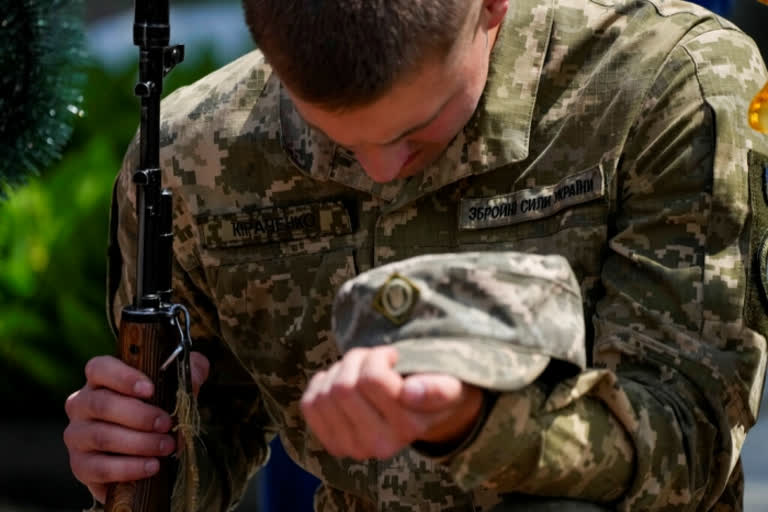ZHYTOMYR( Ukraine): As soon as they had finished burying a veteran colonel killed by Russian shelling, the cemetery workers readied the next hole. Inevitably, given how quickly death is felling Ukrainian troops on the front lines, the empty grave won't stay that way for long. Col. Oleksandr Makhachek left behind a widow, Elena, and their daughters Olena and Myroslava-Oleksandra.
In the first 100 days of the war, his grave was the 40th that the diggers dug in the military cemetery in Zhytomyr, 90 miles (140 kilometers) west of the capital, Kyiv. He was killed on May 30 in the Luhansk region of eastern Ukraine where the fighting is raging. Nearby, the burial notice on the also freshly dug grave of Viacheslav Dvornitskyi says he died May 27. Other graves also showed soldiers killed within days of each other — on May 10, 9th, 7th, and 5th.
And this is just one cemetery, in just one of Ukraine's cities, towns, and villages laying soldiers to rest. President Volodymyr Zelenskyy said this week that Ukraine is now losing 60 to 100 soldiers each day in combat. By way of comparison, just short of 50 American soldiers died per day on average in 1968 during the Vietnam War's deadliest year for U.S. forces. Among the comrades-in-arms who paid respects to Makhachek at his funeral on Friday was Gen. Viktor Muzhenko, the Armed Forces' chief of general staff until 2019. He warned that losses could worsen.
Also Read:Ukraine: Russians withdraw from city of Kharkiv, batter east
"This is one of the critical moments in the war, but it is not the peak," he told The Associated Press. "This is the most significant conflict in Europe since World War II. That explains why the losses are so great. In order to reduce losses, Ukraine now needs powerful weapons that match or even surpass Russian weaponry. This would enable Ukraine to respond in kind."
Concentrations of Russian artillery are causing many of the casualties in the eastern regions that Moscow has focused on since its initial invasion launched on Feb. 24 failed to take Kyiv. Retired Lt. Gen. Ben Hodges, the former commanding general of U.S. Army forces in Europe, described the Russian strategy as a "medieval attrition approach" and said that until Ukraine gets promised deliveries of U.S., British, and other weapons to destroy and disrupt Russian batteries, "these kinds of casualties are going to continue."
